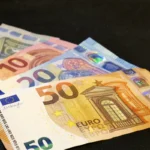Germany is one of those countries where the fear of inevitable industrial decline without cooperation with Russia is very resilient. However, their chemical industry has demonstrated that these rumors, as well as the idea of a “frozen Europe” without Kremlin gas, are just Russian propaganda.
Reflection of business sentiments
The fact is that the chemical industry in the German economy is leading and provides jobs for over 600,000 workers. After rejecting Russian gas, the ifo business sentiment index in this sector rose in April for the third time in a row. This was reported by the Munich Economic Institute, which specializes in detailed surveys of the German business. It should be understood that if a certain indicator changes in one direction three times in a row, it cannot be considered a coincidence. This is a clear result.
It is even more indicative that the ifo business sentiment index has entered the positive zone for the first time in the past year. Experts caution against excessive optimism, but state that at least one fact can be noted: decline has definitely been left behind.
Better or worse?
What does this index mean? It reflects several factors at once:
– The number of German chemical companies planning to expand production in the coming months has increased.
– A large portion plans to raise prices due to increased demand from abroad.
Most interestingly, a survey of corporations and conglomerates has shown that the lack or high cost of energy resources (including Russian gas) is no longer a problem. And the numbers confirm this: currently, the price of gas is the same as ten years ago, namely $300-350 per 1000 cubic meters, despite overall price increases.
There is also no trend of deterioration in these indicators, as German gas storage facilities have been steadily replenishing reserves for the second consecutive year. As of May, the fill rate reached 67%, and the heating season is still far away. This significantly exceeds the long-term average rate.


